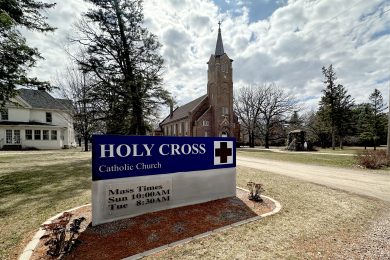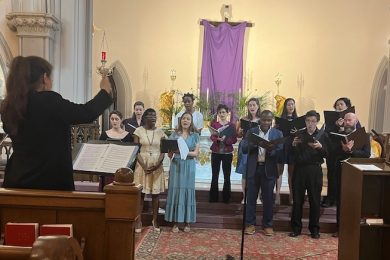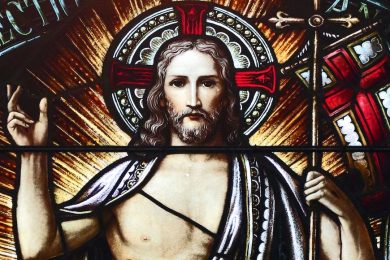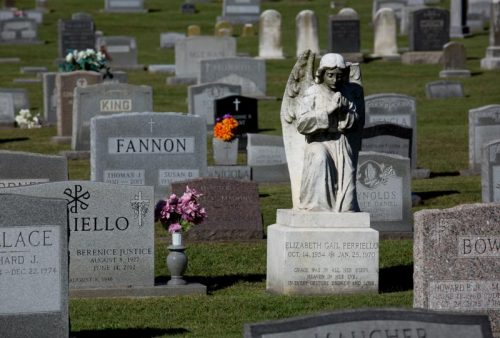Q. My husband and I are both cradle Catholics. He has completed paperwork with the Emory School of Medicine to donate his body to their research program. Emory’s policy is to cremate the body once their research is completed and then, after a memorial service, the cremains will be buried at the Decatur Cemetery here in Georgia.
I would like to know whether this satisfies the “consecrated grounds” requirement of the Catholic Church. (Alternatively, if requested, Emory would return the cremains to the family via the U.S. Postal Service. I would prefer to avoid this if possible, as it would obviously create additional heartache and stress.) (Atlanta)

A. I take it, from what you say, that the Decatur Cemetery is nonsectarian — and that seems confirmed by its website. It is actually the oldest burial ground in the Atlanta metropolitan area — so it would not surprise me if a number of Catholics have been buried there, especially in the days when there were very few Catholic churches and cemeteries in southern states.
Your husband’s cremains may certainly be interred in the Decatur Cemetery. The church’s Code of Canon Law, after speaking about Catholic parish cemeteries, says specifically that “everyone, however, is permitted to choose the cemetery of burial unless prohibited by law” (Canon 1180.2).
A later canon does say, though, that if someone is buried in a secular cemetery, his or her gravesite should be “properly blessed” (Canon 1240). That might be taken care of in what you describe as a “memorial service,” and I have sometimes been asked to officiate at such services; if not, you could ask a priest at a later time to bless the place of your husband’s cremains.

The church’s encouragement of a Catholic resting place has, in part, to do with the fact that prayers and Masses will regularly be offered for those who are buried there. In your case, the prayers of you and your family will help to supply that.
Q. I was born in 1926 and attended Catholic schools before being called into military service during World War II. My wife of 57 years, a convert to Catholicism, died in 2005. Two years later, I began seeing a widow who had been raised Catholic and sometime later asked her to marry me.
She declined, saying that she had promised her husband she would not remarry because she would then lose the medical benefits and the annuity she was receiving. So we lived together for six years, attending Mass regularly, and when she passed away there was a funeral Mass.
While we were living together, I spoke to two different priests in confession and got conflicting advice. (One said what we were doing amounted to “fornication”; the other said that the restrictions imposed on her financial benefits were unjust and that I should not let our moral situation bother my conscience.) Would you comment? (Richmond, Virginia)
A. The first priest was right — although I would have used a bit more pastoral language in explaining it to you. You and your widowed friend were not married in the eyes of the church and, in the church’s view, had no right to be living together as husband and wife.
I wish things were different. I wish, in your situation, there were a way for a priest to offer a marriage blessing while conducting a sort of “commitment ceremony” so that you would be married religiously but not civilly (and thus not adversely affect your individual financial benefits.) But there is not.
Marriage is not purely a private affair; in contemporary culture, clergy, when solemnizing a marriage, act also as agents of the state, and the ceremony must be recorded civilly. The only thing I can do, in a circumstance like your own, is to pray that if your mutual love and your commitment to your religion are strong enough, you would be willing to make the financial sacrifice, sanctify your commitment and be married by a priest.
Questions may be sent to Father Kenneth Doyle at askfatherdoyle@gmail.com and 30 Columbia Circle Dr., Albany, New York 12203.




















